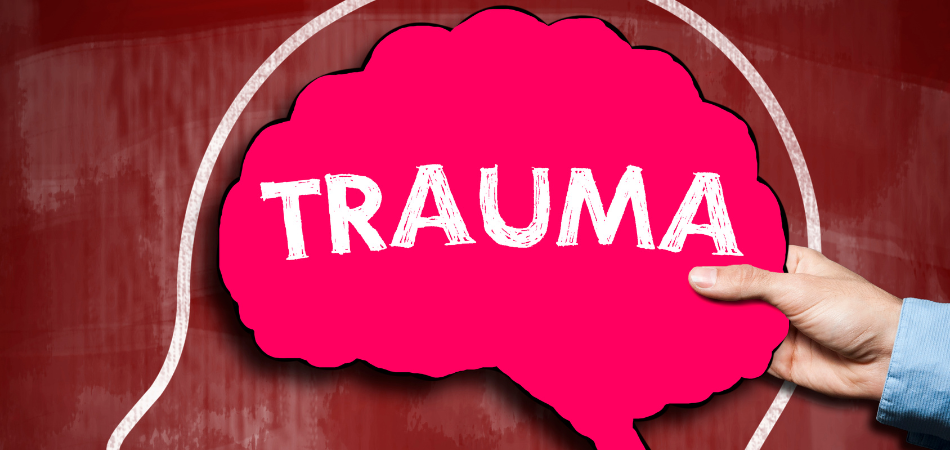
Written by:
Last Updated:
August 7th, 2025
Trauma Therapy | Benefits and How it is Implemented
Trauma is a common underlying factor in the development of addiction as many people use substances or engage in addictive behaviours as a way to cope with or suppress past trauma and its effects.
At Primrose Lodge, we offer specialist trauma therapy as part of our rehab treatment to deal with any underlying traumatic issues that may be driving addictive behaviour. Our experienced team of trauma therapists specialise in helping individuals identify, manage, and ultimately heal from their past experiences, giving them the power to overcome their addiction.

What is trauma therapy?
Trauma therapy is a type of psychotherapy that can help you to heal from the physical and psychological effects of trauma. The aim of trauma therapy is to help you gain a better understanding of your traumatic experiences and their impact on your mental health and behaviour. Therapy for trauma will also teach you how to manage the difficult thoughts and feelings that are associated with the experiences so that you don’t need to use substances or addictive behaviours to cope.
At Primrose Lodge, we know how hard it can be to talk about traumatic experiences and we are here to help. Our trauma therapy sessions provide a safe and supportive environment where you can work through your difficult emotions in order to begin the process of healing from past traumas and ultimately overcome your addiction. Everybody is different and so we treat every person and their own unique experiences with the respect and care they deserve, incorporating a range of different trauma therapy types into our recovery programmes.
The foundations of Primrose Lodge’s trauma therapy
Our trauma therapy programmes are based on post-induction therapy (PIT) which was first developed in the 1970s by Pia Mellody.
PIT works on the basis that people who have experienced trauma are left indelibly marked by the experiences which cause negative emotions such as:
- Fear
- Guilt
- Shame
- Anger
- Sadness
- Mistrust
- Self-blame and hatred
The goal of therapy for trauma is to help you understand how your past experiences and feelings are impacting the present so that you can learn new ways of dealing with your emotions. This will enable you to take back control and live a life free from trauma and addiction.
How does trauma therapy for addiction work?
At Primrose Lodge, we offer a range of trauma therapy sessions to help our clients move through their traumatic experiences and work towards recovery from addiction. Our team of experienced therapists will work with you to:
- Identify any underlying trauma that may be driving your addictive behaviour
- Explore the feelings and emotions associated with the traumatic experience
- Understand the role it has had in your life, how it is affecting you now and the triggers that can lead to a relapse
- Learn techniques for managing difficult thoughts and feelings
- Gain confidence in expressing emotions in a healthy way
- Develop new coping strategies so that you don’t feel the need to resort to addiction as a way of dealing with problems
Our bespoke rehab therapy programmes are designed to meet treatment needs on a physical, psychological, emotional, spiritual and social level. Our highly qualified counsellors and therapists are experienced in delivering a number of evidence-based trauma therapy types that are beneficial to trauma sufferers including:

How does trauma therapy for addiction work in practice?
Primrose Lodge’s trauma therapy programmes include four important stages:
Building rapport with your therapist…
People who suffer from trauma often find it difficult to speak about their experiences or trust other people. That is why it is essential that you feel comfortable with your therapist and can express yourself in a safe and supportive environment. This stage of therapy for trauma involves getting to know one another, developing trust and understanding each other’s roles.
Debriefing your traumatic experiences…
Once you have built a trusting connection with your therapist, they will then ask you to talk about your experiences. This can be a difficult and emotional stage, but it is important to speak openly about what has happened to you so that you can begin to make sense of it and move forward.
Your therapist may ask you to describe your events through a technique called imaginal exposure. This involves recounting the experience in detail to help you process it, gain a better understanding of how it is fuelling your addiction and other behaviours and begin to put it behind you.
Writing an impact statement…
An impact statement is a letter addressed to the perpetrator or cause of your trauma. In your impact statement, you will describe in detail what happened, why you think those things happened to you and the impact they have had on your health, life and happiness. This will help you to free yourself from the emotional baggage that has been weighing you down and causing issues such as addiction during your life.
Confronting the perpetrator…
The final stage of trauma therapy is to read your impact statement aloud, imagining that you are addressing the perpetrator directly. This is usually done during a group therapy session so that you will have all the support you need from your therapists and other clients.
This stage of therapy for trauma is designed to empower you and to verbally recognise that what happened to you wasn’t your fault and that you don’t need to let it define or affect you anymore. This is a huge step because it will enable you to break free from the chains of trauma that are fuelling your addiction or self-destructive behaviour.
How can trauma therapy help after you leave rehab?
As well as its benefits during addiction treatment, therapy for trauma can also be a powerful tool after you return home.
Primrose Lodge offers one year’s free weekly group therapy sessions to all clients as part of our aftercare programme. This is crucial for long-term recovery because transitioning from the sanctuary and safety of rehab back to everyday life where there may be things that remind you of your past trauma can be very difficult.
If something happens in your life which brings up old memories, you may want to write further impact statements to read during your group therapy sessions. By utilising the tools you learned during trauma therapy going forward, you can ensure that you stay on the path to recovery and live a happy, healthy life, not as a victim but as a strong and capable survivor.
If you have any questions about trauma therapy at Primrose Lodge, make sure to get in touch and we will provide the answers.
Frequently asked questions
- Experiences of physical, emotional or sexual abuse
- Divorce or the death of a loved one
- Events such as car accidents, natural disasters, war or terrorism
- Childhood neglect and domestic violence
- Witnessing substance abuse and addiction in family members
Disclaimer:
The availability of therapies may vary across UKAT centres. The specific therapies provided will be determined based on your treatment plan and the programme offered at your chosen facility. All treatments are subject to clinical assessment and programme availability at the time of admission. For further details on the therapies included in your treatment plan, please contact our admissions team.

